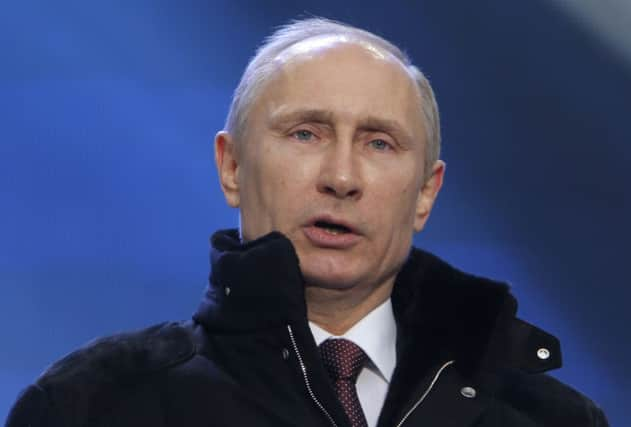Nato vows to defend allies against Russian forces


Anders Fogh Rasmussen, Nato’s secretary-general, sought to allay fears in eastern European states over the alliance’s willingness to help them in case of attack.
“All Nato allies can be assured of our determination to provide effective defence. We have all plans in place to provide effective defence of our allies,” he told a press conference in Brussels, adding that the western military alliance was discussing with Kiev how it could enhance its support for Ukraine, which is not a Nato member.
Advertisement
Hide AdAdvertisement
Hide AdThe Danish politician also said the alliance was “very much concerned about the Russian military build-up along the borders of Ukraine”.
Although it is unlikely Nato will provide Ukraine and other countries feeling Russian pressure, such as Moldova and Georgia, with direct military support, it could offer equipment, logistics assistance and intelligence.
Although Ukraine and Moldova are not members of Nato they are part of its Partnership for Peace programme. Nearby Romania and Hungary are members of Nato.
Mr Rasmussen’s expressions of concern over Russian intentions were echoed by United States president Barack Obama, who said he was “concerned about further encroachment by Russia into Ukraine”.
“That will be a bad choice for president Putin to make,” Mr Obama said at the start of a European tour in which the Ukraine crisis is set to take centre stage. “But, ultimately, he is the president of Russia, and he’s the one who’s going to be making that decision.
“Russia is a regional power that is threatening some of its immediate neighbours, not out of strength but out of weakness.”
At the moment, the Russian troop build-up appears to be part of a Kremlin policy to keep the pressure on not just Ukraine but also the tiny republic of Moldova.
Once part of the Soviet Union, Moldova fears it is now in Moscow’s sights and Russian troops could move in to annexe the breakaway Russian-speaking republic of Transnistria, which has declared independence despite remaining formally part of Moldova.
Advertisement
Hide AdAdvertisement
Hide AdThese fears have been heightened by a recent declaration by the Transnistrian government proclaiming its willingness to merge with Russia.
But with Transnistria landlocked and sharing no common border with Russia, any move by Moscow to seize it could require sending troops through Ukraine, and that might spur the West into imposing tougher sanctions on Russia.
Prime Minister David Cameron said that while the West opposed Russia’s annexation of Crimea, it would refrain from imposing harsher sanctions – unless Russia moved troops into eastern Ukraine.
“There’s a view that the status quo is unacceptable, but there’s another very strong view that any Further steps into eastern Ukraine would be even more serious and would result in much greater sanctions,” Mr Cameron told the press in The Hague.
Sergei Lavrov, the Russian foreign minister, met his Ukrainian counterpart for the first time despite the Kremlin still refusing to recognise Kiev’s government.
Mr Lavrov said the two sides agreed “not to fuel further escalation in the Crimea problem that could cause casualties”, and added that Russia had no intention of using force in other regions of Ukraine.